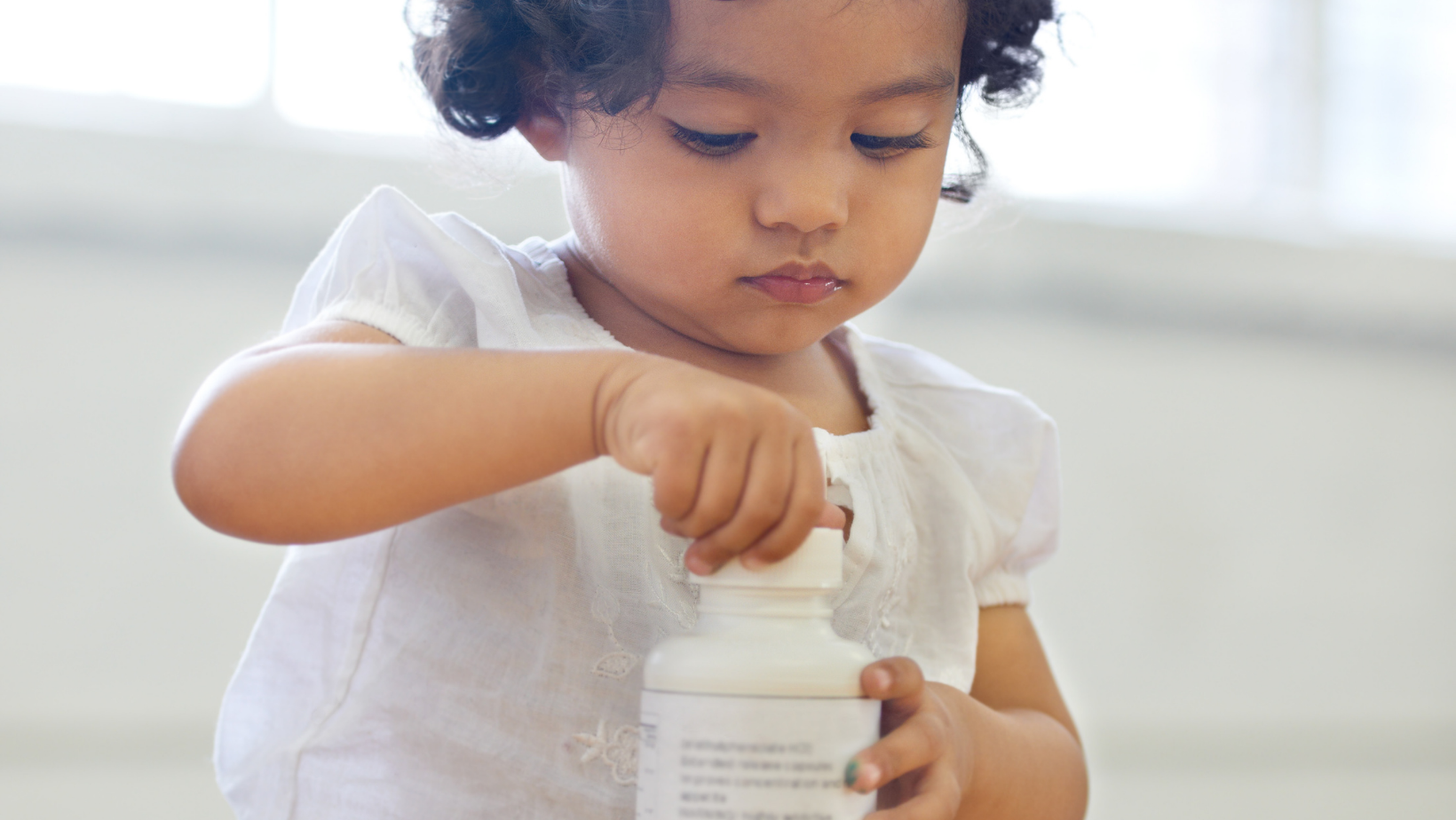Every week eight Victorian children present to Emergency Departments due to unintentional medication poisoning

Kidsafe Victoria is urging parents and carers to restrict children’s access to medicines – the leading substance involved in unintentional childhood poisonings – in a bid to reduce the number of incidents.
The call comes as statistics from the Victorian Injury Surveillance Unit show that in the 2020-21 financial year, 425 Victorian children aged 0-14 years presented to an Emergency Department due to medication poisoning. Children under the age of 5 were most at risk, accounting for 72% of cases.
Some of the most common substances involved included over the counter medicines such as Paracetamol and Ibuprofen, prescription medications including those for blood pressure, antidepressants and sleeping tablets; as well as hayfever tablets, vitamins, and ADHD medication.
While medication is the leading cause of poisoning incidents, there are a range of common household products that can pose a hazard to children, and thousands are exposed to them every year. In 2021 alone, the Victorian Poisons Information Centre received 19,237 calls – approximately 53 per day – relating to the exposure of a poisonous substance involving children aged 0-14 years. The large majority of these calls were for incidents involving children aged under 5.
Jason Chambers, General Manager of Kidsafe Victoria, highlighted the reasons why young children are at increased risk of unintentional poisoning from medications.
“Children are naturally curious and will often explore their environment by placing everything that they find in their mouths, including potentially poisonous products.”
“Medications can be attractive to children – some are bright colours, and they can look very similar to lollies. Even substances labelled ‘natural’, those designed for children, or those that are good for you in small doses, can pose a danger if the recommended dose is exceeded”, said Mr Chambers.
Many childhood poisoning incidents occur due to unsupervised access, including when items are left out after being used or in places that are easily accessible. To help reduce the risk, Kidsafe Victoria recommends that all poisons – including medications and vitamins – are stored out of the sight and reach of children in a lockable cupboard at least 1.5 metres off the ground.
“Medications are items that we all have in our homes, carry in our bags and in cars. Regardless of the type of medication, they need to be kept locked up and out of reach from children. It’s also a good habit to store any bags up high as soon as you enter the home,” said Mr Chambers.
While many medications come in child resistant packaging, Kidsafe Victoria has warned that this should not be relied on to keep children safe.
“It’s important to remember that child resistant containers are not child proof. They are designed to be difficult for children to open, but not impossible, which means that these products still need to be stored in a safe place”, said Mr Chambers.
Kidsafe Victoria’s Tips to Prevent Poisoning from Medications
- Lock away medicines and vitamins – up high and out of reach (at least 1.5 metres off the ground)
- Place handbags and other bags out of reach as soon you enter the home – this includes bags that visitors may bring with them
- Use a lockable container for refrigerated medicines
- Check the recommended dosage when giving medication to children and always administer it in a well lit room
- Record the time and dose when medication is given and keep this with the pack/bottle, to reduce the risk of an accidental overdose
- Never refer to medications as ‘lollies’ or ‘sweets’ – this can confuse children
- Dispose of unwanted and out of date medicines safely
What to do if you think your child has ingested a poisonous substance
- Never try to induce vomiting
- Phone the Poisons Information Centre on 13 11 26 (24 hours a day, 7 days a week Australia wide). They will advise you of what to do next
- Have the product container with you when you call – the Poisons Information Centre will want to know what ingredients are listed in the product
- If your child has collapsed, stopped breathing, is fitting or is suffering an anaphylactic reaction, ring 000 for an ambulance
For more information please visit: https://www.kidsafevic.com.au/home-safety/poisoning/

